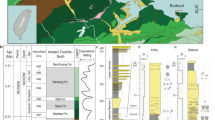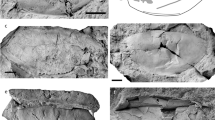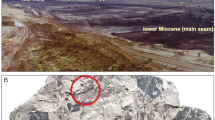Abstract
THE discovery of the presence of the Archiannelid, Protodrilus, on the English coast is an interesting fact inasmuch as it extends the known domain of a genus of an archaic group of animals, and also adds a valuable animal to our records. So far as is known Protodrilus appears to inhabit only the European seas,1 having been taken in the Black Sea, the Mediterranean, at Heligoland in the North Sea, and at Ambleteuse, on the French side of the Straits of Dover. Protodrilus was found on March 2 in a small bay just outside and to the east of Plymouth Sound. On March 11 the spot was again visited, and a large number of specimens, more than a hundred, gathered in about an hour. The animals were found almost at the high-water mark among stones and gravel at a point where a small stream of fresh water runs into the sea.
This is a preview of subscription content, access via your institution
Access options
Subscribe to this journal
Receive 51 print issues and online access
$199.00 per year
only $3.90 per issue
Buy this article
- Purchase on Springer Link
- Instant access to full article PDF
Prices may be subject to local taxes which are calculated during checkout
Similar content being viewed by others
Author information
Authors and Affiliations
Rights and permissions
About this article
Cite this article
ORTON, J. The Occurrence of the Archiannelid, Protodrilus, on the South Coast of England. Nature 91, 85–86 (1913). https://doi.org/10.1038/091085c0
Issue Date:
DOI: https://doi.org/10.1038/091085c0
Comments
By submitting a comment you agree to abide by our Terms and Community Guidelines. If you find something abusive or that does not comply with our terms or guidelines please flag it as inappropriate.



